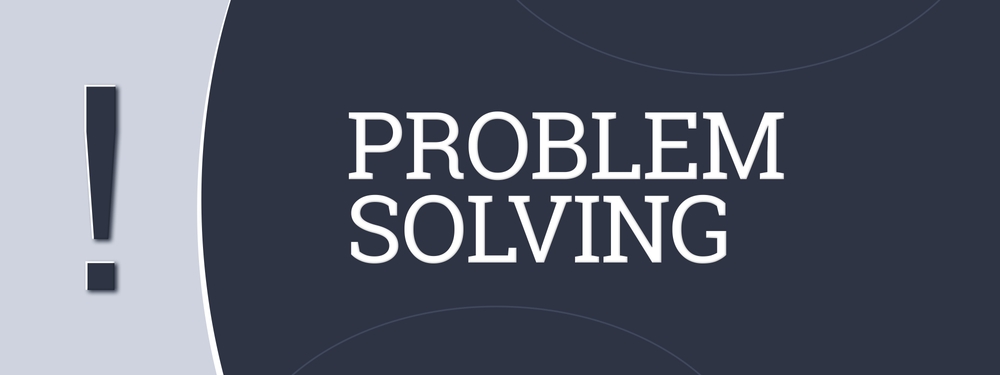PROBLEM SOLVING

What is problem-solving?
Problem-solving is not just a theoretical concept but a practical skill that can be applied in various personal and professional contexts. It’s the art and science of finding, analyzing, and creating practical solutions to problems or impediments that hinder progress or prevent desired outcomes. This systematic process begins with understanding the nature of the problem, identifying potential solutions, and evaluating their feasibility and effectiveness. It involves multiple techniques and tools, such as brainstorming, root cause analysis, and decision-making frameworks.
Effective problem-solving requires critical thinking, creative problem-solving skills, effective communication, and collaboration. It also necessitates a willingness to question assumptions and explore new opportunities. Problem-solving is a powerful skill that can help individuals and organizations overcome challenges and reach their goals.
Why is problem-solving training important?
Problem-solving training is essential for several reasons:
- Improved Decision-Making: Effective problem-solving training can help individuals and teams make better decisions by teaching them to analyze problems systematically and evaluate potential solutions.
- Increased Efficiency: Problem-solving training can help individuals and teams to work more efficiently by identifying and addressing problems quickly and effectively.
- Enhanced Creativity: Problem-solving training can help individuals and teams develop their creativity skills, which is critical for generating innovative solutions to complex problems.
- Improved Collaboration: Effective problem-solving requires collaboration and teamwork. Problem-solving training can help individuals and teams work together more effectively by developing collaboration skills.
- Increased Confidence: Effective problem-solving training can help individuals and teams feel more confident in solving problems, increasing motivation and productivity.
- Better Results: Effective problem-solving training can ultimately lead to better results, whether in terms of increased revenue, improved customer satisfaction, or increased efficiency.
Target audience for learning problem-solving
The range of audiences that can benefit from developing problem-solving skills is wide and varied, as these abilities apply in various contexts and difficulty levels. Developing problem-solving skills in elementary, middle, and high school can help students excel academically and prepare them for a career. For professionals, problem-solving is crucial for success in various industries, such as Engineering, Finance, Healthcare, Technology, and more. Professionals who work in these sectors and other fields that require analytical and decision-making skills will benefit from developing problem-solving abilities.
Furthermore, problem-solving skills can help individuals who wish to enhance their creative thinking, develop novel solutions, and overcome difficulties in their personal and professional lives. In conclusion, problem-solving, analysis, evaluation, and development of practical solutions are valuable and transferable skills that can benefit all individuals who take the time to learn them.
Advantages of learning problem-solving
- Decision-making: Improved decision-making skills can help you make more confident decisions. You can analyze different options and consider potential outcomes to make better decisions.
- Creativity: Problem-solving involves thinking outside the box and creating innovative solutions to complex problems. You can improve your creativity and develop new ideas and approaches to solving problems.
- Communication: Learning problem-solving helps you communicate effectively, listen to others, and work with others.
- Productivity: Improved problem-solving will help you and your team become more productive. You can identify and solve problems and streamline processes to improve performance.
- Career advancement: Many employers appreciate people who have problem-solving abilities. Learning to solve problems can help you stand out in the job market and increase your chances of success.





